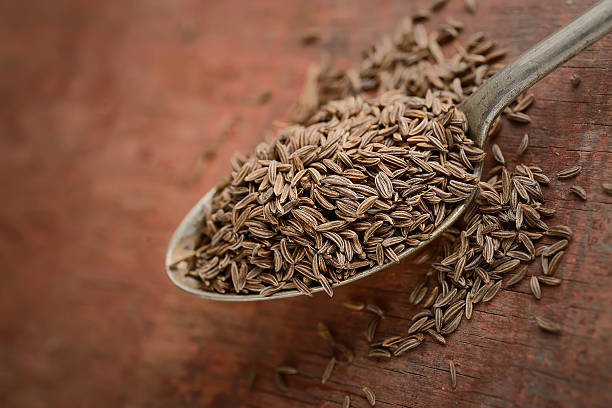Cumin, also known as jeera, is a popular spice that is widely used in many cuisines around the world. It is made from the dried seeds of the cumin plant, which is a member of the parsley family. In this article, we will explore the nutritional value of cumin per 100g and whether or not it is healthy for you.
The first thing to note is that cumin is an extremely low-calorie food. One hundred grams of cumin contains just 114 calories, making it an ideal ingredient for those looking to lose weight or maintain a healthy diet. However, despite its low calorie content, cumin is still a nutrient-dense food.
One of the key nutrients found in cumin is iron. One hundred grams of cumin contains 69.8 milligrams of iron, which is about 844% of the daily recommended intake for adult men and about 472% for adult women. Iron is essential for the production of red blood cells and helps transport oxygen throughout the body. Low iron levels can lead to anemia, a condition in which the body does not have enough red blood cells to carry oxygen.
Cumin is also a good source of dietary fiber. One hundred grams of cumin contains 40.2 grams of fiber, which is about 160% of the daily recommended intake. Fiber is important for maintaining a healthy digestive system and can also help lower cholesterol levels.
In addition to iron and fiber, cumin is also a good source of several other essential vitamins and minerals. These include:
Vitamin E: 4.2mg (28% of the daily recommended intake)
Vitamin K: 72.7mcg (60% of the daily recommended intake)
Calcium: 1499mg (150% of the daily recommended intake)
Magnesium: 251mg (63% of the daily recommended intake)
Phosphorus: 367mg (52% of the daily recommended intake)
Cumin also contains a variety of phytochemicals that have been shown to have health benefits. These include thymoquinone, which has anti-inflammatory and antioxidant properties, and cuminaldehyde, which has been shown to have antimicrobial properties.
Overall, cumin is a healthy and nutritious food that can be enjoyed in moderation as part of a balanced diet. Its low calorie content, high fiber content, and high levels of essential vitamins and minerals make it a great choice for those looking to maintain a healthy weight and overall health.
In addition to its nutritional benefits, cumin has been used traditionally in Ayurveda and traditional Chinese medicine to treat a variety of health conditions, including digestive issues, respiratory problems, and skin conditions. While more research is needed to confirm the effectiveness of cumin in treating these conditions, the spice’s anti-inflammatory and antioxidant properties suggest that it may have potential health benefits.
It is important to note, however, that cumin does contain small amounts of oxalates, compounds that can contribute to the formation of kidney stones in certain individuals. Additionally, cumin can cause allergic reactions in some people, so it is always a good idea to use it in small amounts and to test for allergic reactions before consuming larger amounts.
In conclusion, cumin is a healthy and nutritious food that can be enjoyed as part of a balanced diet. Its high levels of iron, fiber, and other essential vitamins and minerals make it a great choice for maintaining overall health. However, it is important to use it in moderation and to be aware of any potential allergic reactions or health conditions that may make it less suitable for consumption.

 Home
Home Health
Health Diet & Nutrition
Diet & Nutrition Living Well
Living Well More
More












